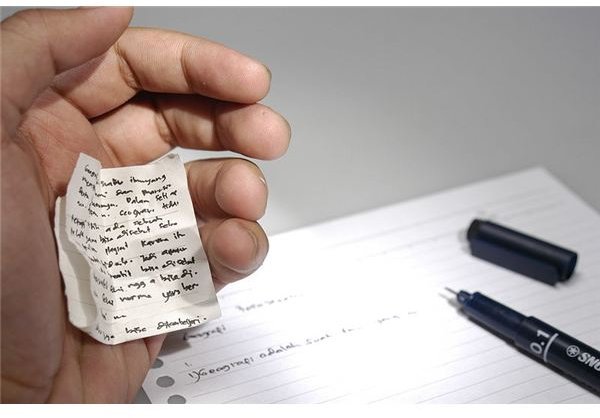Consequences of a College Student Cheating on Exams
The Pressure to Cheat
With the step up from high school to college comes a commensurate increase in academic expectations. Suddenly, the level of accountability required to do well in courses jumps up. Many students, unprepared for the rigors of college, panic and cheat on their exams in a desperate attempt to pass. Students who cheat on college exams often find, however, that their college or university is not so lax on cheating as was their high school. Professors keep a sharp eye out for any untoward activity, and essays are often run through plagiarism-detectors as a matter of course. The consequences for cheating, too, are often more severe than in high school. The punishment doled out to a student caught cheating depends on a number of factors, such as the specific college’s rules, the professor’s own leniency, and the flagrancy of the cheating.
A Bit Fat Zero
The one standard consequence for cheating is a grade of zero on the exam. Depending on the course, this may severely damage a student’s hopes for good grades or result in the student failing the course. Failing a course, especially in the student’s major, will drag down his or her GPA and hurt chances for finding good internships and getting letters of recommendation from professors.
Although almost every student caught cheating can expect to get a zero on the test, the further consequences can vary considerably. Some professors choose not to report the cheating. If the professor doesn’t report the infraction, the matter will end with the failed test (don’t expect the professor to be helpful in the future, though). Many professors, however, do report the exam cheating. Most colleges and universities have academic integrity policies which spell out their specific responses towards cheating; it is recommended that students review their own school’s policies.
Future Prospects
Once the cheating incident has been reported, the matter will go through the college’s academic integrity rules. Most colleges specify that students caught cheating will receive a failing grade for the entire course, not just the exam. In addition to failing the course, students usually must appear before a disciplinary board. The disciplinary board may be more or less harsh depending on the circumstances, but they will likely recommend that a student be put on academic probation if it is their first offense. Although it is possible to appeal the disciplinary board’s decision, unless the student can produce compelling evidence suggesting he or she didn’t cheat the decision is likely to stand. Consequences for repeat offenders are even harsher: they are usually expelled from the college. Colleges have little tolerance for cheating, so the first time a student is caught is considered to be his or her only warning. If the student doesn’t learn the lesson, he or she will be expelled from the school with no recourse for appeal.
The best course of action for a college student who has been caught cheating is to discuss the situation with the professor. If the matter is taken to the disciplinary board, students should not continue lying, as the board will not appreciate this. Instead, the student likely must accept his or her punishment and avoid cheating in the future.
